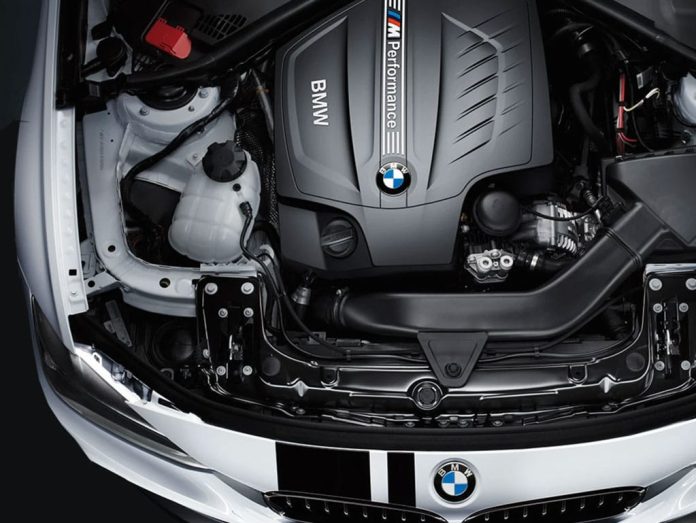BMW vehicles represent a blend of sporty engineering, driving dynamics, and sophisticated technology. Built for those who appreciate both performance and luxury, they offer more than just transport they provide a connected experience between driver and machine. Yet maintaining that experience requires an informed approach to service and repair. For owners searching for BMW Specialists Hertfordshire, trusting their vehicle to general repair shops can come with risk. The right choice is always one that understands BMW from the inside out.
Unlike other brands, BMW doesn’t rely solely on mechanical excellence. Their vehicles are constructed around a central concept of balance. From rear-wheel-drive handling to precise throttle response, every detail contributes to the performance standard. As such, repairs and servicing must follow an equally deliberate method where accuracy, equipment, and component compatibility are key.
The Uniqueness of BMW Engineering
BMW vehicles are built with tight tolerances and are packed with features managed by software. Even basic systems like climate control, braking, and suspension are electronically integrated. Onboard computers constantly monitor performance and make real-time adjustments. This means that even routine procedures, such as battery replacement or oil servicing, must be handled with the right tools and know-how.
Take BMW’s intelligent battery sensor (IBS) system. Replacing the battery without registering it through the vehicle’s digital network can cause unpredictable electrical behaviour or premature failure. Similarly, failing to use the correct oil approved to BMW LL-01 or LL-04 standards can lead to increased engine wear or sludge buildup.
Another example is adaptive suspension. Many BMWs come with electronically controlled dampers that adjust based on driving style and road surface. If a suspension component is changed without recalibrating the system using ISTA diagnostic software, it can affect ride quality or trigger warning lights.
Typical Faults That Require a Specialist
While BMWs are known for longevity, there are several known issues that can surface across different model ranges each requiring a specialist’s attention:
- Timing Chain Wear: Particularly in certain 4-cylinder petrol engines. A rattling noise at startup can indicate wear that may lead to serious engine damage if left unresolved.
- Oil Leaks: Common around the valve cover gasket, oil filter housing, and oil pan. These often begin as small weeps but escalate over time.
- Cooling System Failures: Thermostat and water pump issues can appear without warning and lead to overheating. BMW uses electric water pumps which require monitoring and specific replacement procedures.
- VANOS (Variable Valve Timing) Problems: Symptoms include rough idling, poor throttle response, and loss of power. Diagnosis and repair must be precise to avoid further internal damage.
- Electronic Parking Brake Faults: When the system malfunctions, a reset or replacement requires proper calibration and programming especially in newer models.
These are just a few examples. The list grows as the model years become more advanced, with increasing dependency on software, sensors, and electronics.
Tools That Separate Specialists from General Garages
The foundation of proper BMW diagnostics is the ISTA system short for Integrated Service Technical Application. This tool communicates with every module in the car: engine, transmission, infotainment, navigation, airbags, traction control, and more. It provides real-time data, service plans, reset functions, and firmware update access.
Without ISTA, technicians are limited to surface-level diagnostics. A basic OBD scanner might read engine codes, but it won’t be able to detect transmission learning errors, active DME faults, or run advanced tests like throttle actuator function checks. The lack of depth can lead to misdiagnosis or ineffective repairs.
BMWs also require special tools for physical work. For example, the belt tensioner release tool, rear brake wind-back equipment, or turbo coolant line tools. Attempting these jobs without the right setup risks damage or incomplete repairs.
Software Integration and Updates
Modern BMWs are, in many ways, rolling computers. From iDrive and navigation to safety systems like lane assist and collision prevention, everything relies on properly functioning software. Updates from BMW fix bugs, enhance system response, and optimise performance.
Specialists can access these updates and apply them using OEM-compatible equipment. This ensures that your vehicle stays current with the latest improvements and operates to its full potential. Software problems if ignored can affect the driving experience or create false warning signals.
Parts: Why OEM Quality Matters
BMW engineers every component to match performance expectations and durability standards. From control arms to spark plugs, original parts are often designed with materials or shapes that differ from aftermarket alternatives.
Using non-OEM parts might seem economical, but it can impact the car’s performance. A mismatched sensor may not report correctly, a cheap filter might restrict flow, and an off-spec gasket could lead to leaks. Specialists source either genuine or approved alternatives, ensuring full compatibility.
Furthermore, specialists often know about updated part numbers. If a water pump, for example, was revised due to reliability concerns, a knowledgeable technician will make sure your vehicle gets the newer, improved version.
Preventative Maintenance and Long-Term Value
BMW ownership is not just about driving it’s about long-term value. Preventative maintenance plays a huge role in preserving that value. A specialist won’t just fix visible issues they’ll look for early signs of wear, inform you about upcoming service needs, and help plan future maintenance.
They’ll also explain what’s necessary now versus what can wait something often missing at non-specialist shops. This approach avoids reactive repairs, where problems escalate and cost more.
And for owners planning to resell their BMW, having a documented history with recognised specialists adds credibility. Buyers are more confident when they see care from those who understand the car’s systems and have maintained it with appropriate attention.
Common Missteps at General Garages
General repair centres might mean well, but they often fall short due to lack of experience or equipment. Common issues include:
- Overfilling oil, which can damage turbo seals or the crankcase ventilation system
- Forgetting to register batteries or reset adaptations after repairs
- Replacing parts without addressing root causes
- Using incompatible fluids or filters
- Misreading fault codes due to limited scanners
These mistakes can lead to more visits, more costs, and avoidable frustration.
When BMW drivers look for BMW Specialists Hertfordshire, they are not just seeking convenience they are investing in their vehicle’s future. A knowledgeable technician isn’t just someone who knows how to repair; they know how to preserve the driving experience BMW is known for.
Whether it’s routine servicing, a complex repair, or diagnosis of an unusual fault, working with the right team ensures your car remains reliable, safe, and enjoyable to drive.

